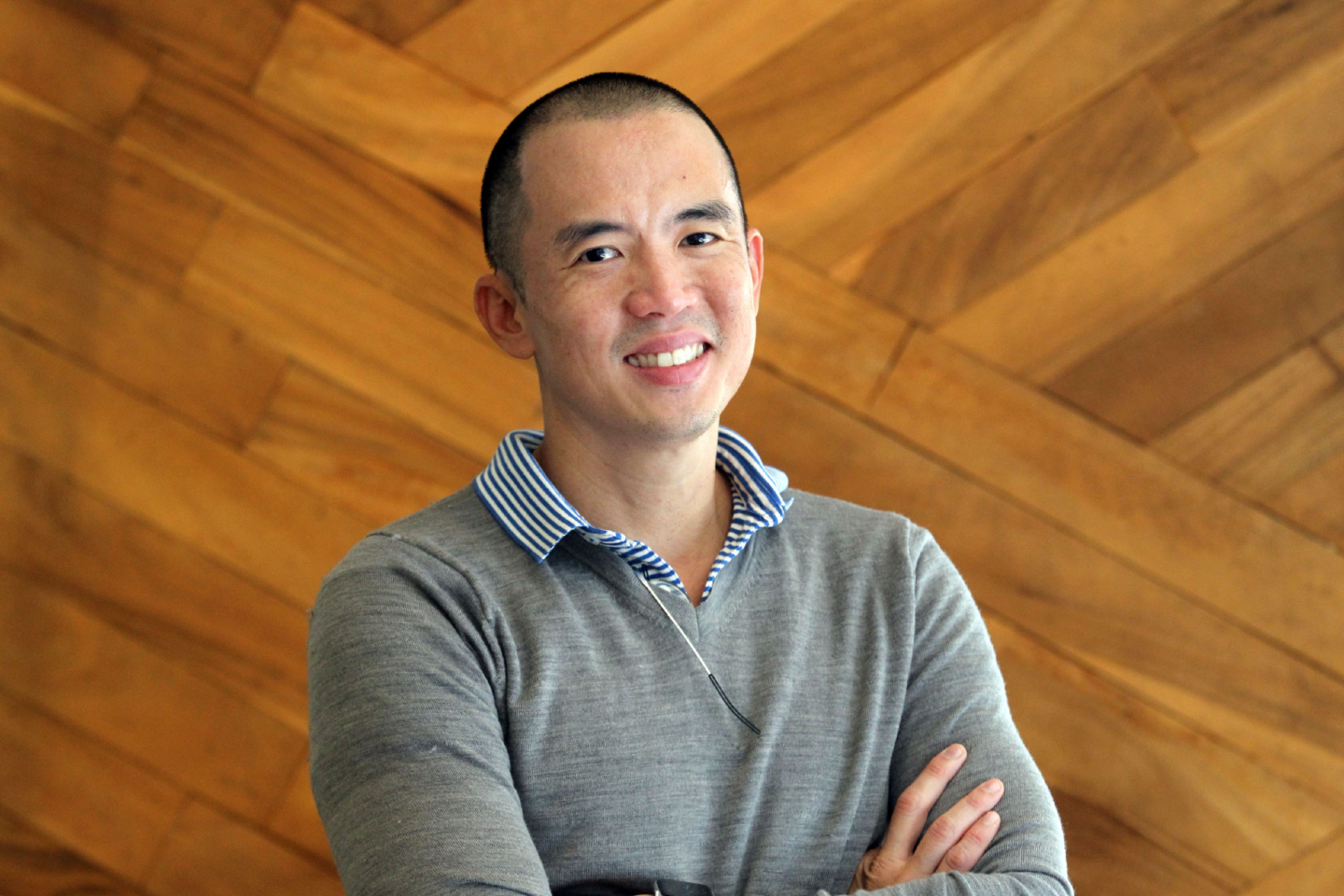
Shen enjoys businesses with high-growth potential (Photo: Kenny Yap/The Edge)
Sunlight, shadow and a haunting score beautifully evoke the architectural and emotional wonder of Cheong Fatt Tze in the seven-minute movie, Within Indigo Walls. The atmospheric short film sees a young boy wandering through the hotel, following the faint chords of a cello until he chances upon a young girl practising her instrument. Their tentative friendship abruptly ends when his family checks out, but they serendipitously reunite as adults at the century-old mansion where a delicate tapestry of music and mood again weave the fragile strands of friendship … and maybe romance.
Award-winning British director Michael Gosbee stumbled upon Cheong Fatt Tze on Instagram and was drawn to the indigo façade that inspires its nickname, The Blue Mansion. Without even stepping foot into the building, Gosbee knew he wanted his next project to be a brand story about George Town’s most famous landmark and reached out to the owners. Executive director Loh-Lim Shen Yi was only too happy to comply, inviting the crew to Penang Island and closing the hotel for a week for filming. Within Indigo Walls, in which he is credited as executive producer, was awarded the silver medal for Most Emotional Film at the 2019 Brand Film Festival.
cheong_fatt_tze.jpg
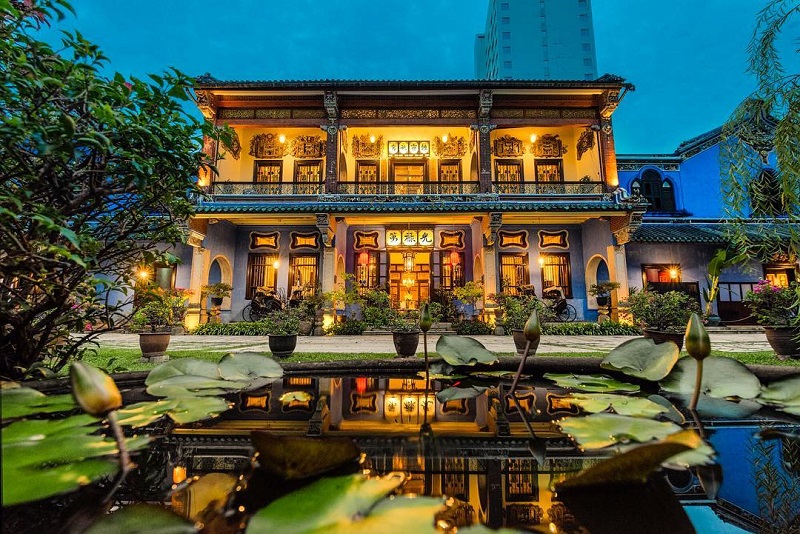
The son of architects and conservationists Laurence Loh and Loh-Lim Lin Lee, Penang-born Shen had little idea of a career path when he graduated with a business degree from the University of Oregon. He worked for a bank in Bristol, the UK, for a few years before returning to Malaysia in 1999, upon which he became a certified system engineer.
“Someone told me technology was the next big thing, so I literally worked my way up, from under desks where I fixed computers to building websites and eventually leading a tech company,” he says. “I just sort of fell into it and was open to opportunities that came by. It was the heyday of web agencies and, as clichéd as it sounds, an exciting time for the potential of technology.”
Following leadership roles at an IT consultancy and a web agency servicing blue-chip clients, Shen co-founded digital campaign management business The Sands Agency and was country general manager of the iProperty Group for three years. He left in 2015 to assume the role of growth and operations director at venture capital company Frontier Digital Ventures, where his track record at iProperty — including strategic restructuring of business units and 30% year-on-year growth — proved valuable in guiding companies to profitability. That led to a partnership at business and media consultancy Ampersand Advisory, a position he has occupied for close to a year now.
within_indigo_walls.jpg
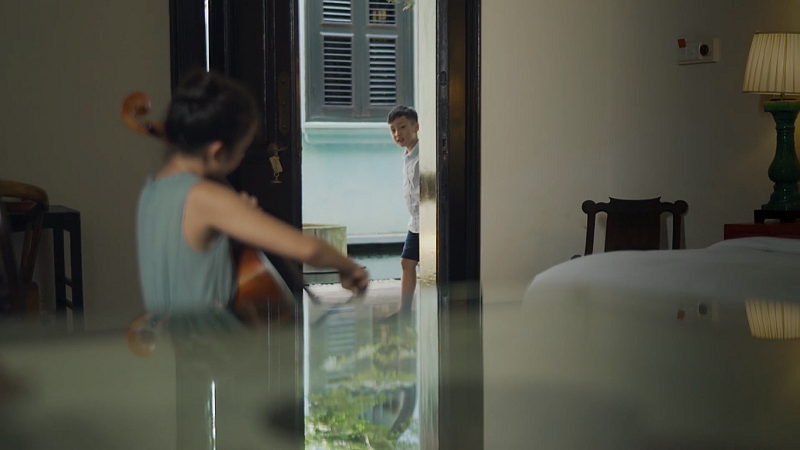
“My career is not as colourful as it looks on paper. It all happened quite organically,” says the self-effacing Shen. “I’m a bit of a Jack of all trades, I’m not an expert in any one thing but I can offer a holistic view of a situation. I can go into a company, look at its operations, data and resources, and strategise a plan for growth. I had a short stint at a telco and quickly realised it wasn’t for me. I enjoy businesses with high-growth potential, which you get with tech, while larger corporations tend to be almost clunky machines compared to the agile nature of start-ups. Growth has been that unifying theme across the various paths my career has taken.”
As a heritage icon and hospitality player, Cheong Fatt Tze appears to be almost an anomaly on his résumé. Built on Leith Street in 1904 as the home of its namesake owner, a wealthy Chinese businessman and politician, Cheong Fatt Tze is said to be one of only two such buildings of its size outside China. Housing five courtyards, several stables and servants’ quarters, it was constructed using materials imported from as far as China and Scotland. Cheong passed away in 1916, stating in his will that the mansion was to remain in the family. It fell into disrepair when funds allocated for its maintenance dried up. After his last son died, the building — a miserable shell of its former self — was put up for sale.
boutique-hotel-penang-island-blue-mansion-architecture-07_asrxml.jpg
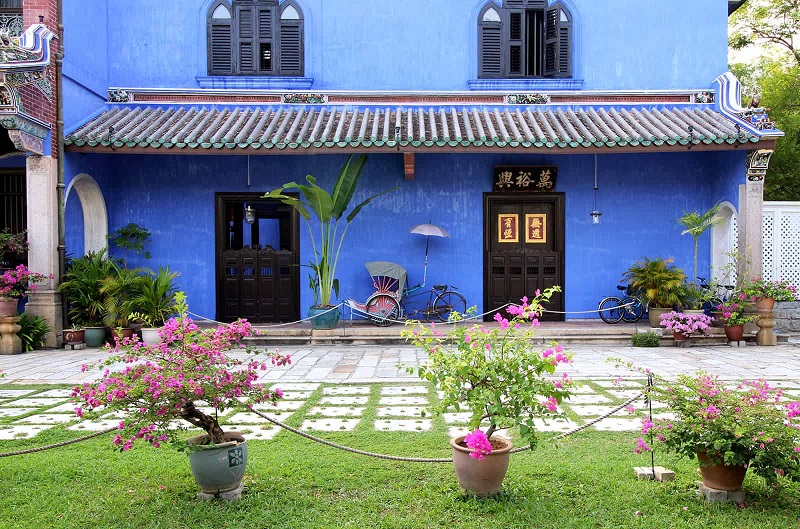
“I was in my mid-teens when the property was put on the market in 1990 and I thought my parents were absolutely crazy for taking it on,” laughs Shen. “Heritage was not a word in the public’s vocabulary then and if you mentioned ‘conservation’, it referred to things like turtle sanctuaries. As a teenager, you’re not very attuned to this sort of thing and I was extremely unimpressed when I saw the building. It was an old, decrepit property but it transformed into something truly spectacular once it was done up. They restored it beautifully and turned it into a heritage site and hotel. It looked grand, like the best life you could imagine your grandparents living back in the day, and I was very proud of what my parents had done. I was personally quite detached from the project, since I lived abroad and then outstation in KL for much of the time, so I was happy to leave them to it and watched with pride from afar.”
But when his father phoned to ask for his help with the hotel in 2015, he could not refuse the patriarch. In the decades since his parents had taken custody of the building — decades which would see heritage properties rise in regard and value, and an appreciation for their legacy form its own genre of tourism — the world had evolved and most business dealings had migrated online, a landscape in which Shen was familiar with.
“The times had shifted beyond my parents’ sphere of knowledge,” he says. “When my dad first asked for my help, I thought, this is more your thing than mine, I know nothing about heritage and hospitality. So we sat down and reassessed who we really were, what the core experience of Cheong Fatt Tze was going to be. We were running tours of the property, the fine dining restaurant Indigo and the 18-room hotel business. Cheong Fatt Tze is an iconic building but that iconic status was not translating into revenue, which made it unsustainable. We had to ask ourselves what our identity would be and from a very pragmatic, commercial perspective, we realised it had to be a hotel first and foremost. That was clearly our biggest revenue driver.
the_ming_suite.jpg
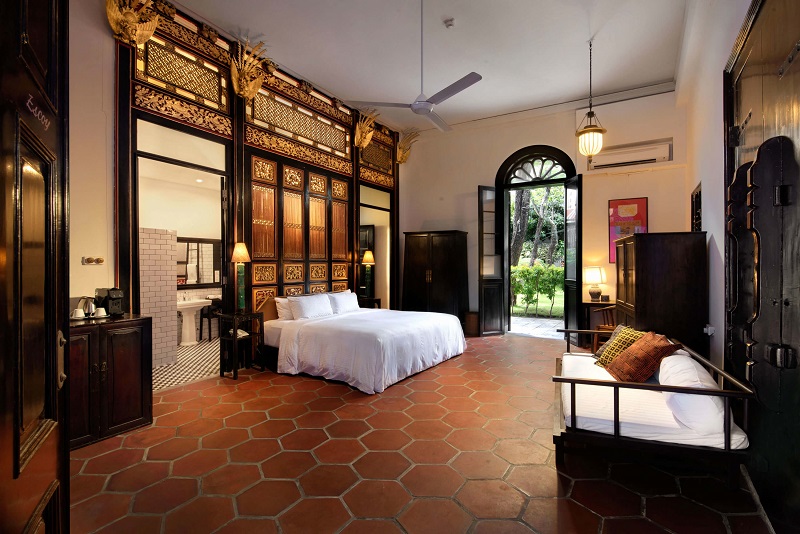
“I had just started working for the VC firm and was juggling both jobs, trying to increase our online visibility and customer engagement, as well as revamp the hotel’s processes and operations to suit digital travel agents and systems. I certainly didn’t have the technical skillsets required for the heritage and architectural aspects of it, and I’m not a storyteller like my mother [Loh-Lim still occasionally leads tours at The Blue Mansion], but I brought that growth mindset and understanding of the online landscape to the business. It wasn’t too difficult a transition; I already had experience working for digital marketplaces for property through iProperty, and online travel agents are similar in nature; they’re marketplaces for travellers.”
There was still a learning curve, however.
“I myself was only just discovering social media apps like Instagram in 2015,” discloses Shen, who now spends his time in KL and Penang. “I’m from Gen X, born in between the offline and online generations. I didn’t understand the platform initially, but then I began comprehending the power of its influence. We were in desperate need of new energy as the business was stagnating. We were breaking even but not thriving, so we needed to expand beyond our niche audience of older travellers who appreciate heritage to engage with more diverse and younger audiences.
"Pop culture played a part — that mahjong scene between Rachel Chu (played by Constance Wu) and Eleanor Young (Michelle Yeoh) in Crazy Rich Asians took place in the lobby and boosted our popularity greatly among tourists and movie fans. By the fourth quarter of last year, the business was running almost on its own and we were focused on doing fun things like Within Indigo Walls to get the word out about Cheong Fatt Tze, elevating the hotel through engagements and experiences.”
And then, Covid-19 struck and the hospitality industry was among those hit hardest by the global pandemic. Shen now puts in significant time trying to resuscitate the hotel, kept afloat by domestic demand as a post-MCO (Movement Control Order) surge in travel sees more Malaysians than usual checking into The Blue Mansion.
Local support comes as a relief to the executive director, who envisions the landmark to be as much a gathering place for the islanders as it is a destination for tourists.
“It’s a very conscious decision to embrace Penangites among our core customers,” he says. “If you look at old-world hotels, the ones that were really successful were pivotal to their city, part of the fabric of local society. This was where people would gather socially or for business, for formal or informal meetings or to seal deals. We were trying to encourage this with The Bar, our in-house lounge, and a new café we were preparing to launch when the MCO was enforced. It occupies a sort of servants’ quarters by the mango tree on the edge of the premises and will be a grab-and-go café for locals, with good coffee and refined pastries and cakes. It’s almost ready.”
For someone who professes to have had no ambition as a boy, Shen seems to have found his place, straddling the opposing worlds of the past and the future. The streamlined processes he developed for Cheong Fatt Tze can be replicated at other boutique hospitality ventures, though he is adamant about only collaborating with properties with similarly compelling stories should this be his next endeavour. His work in the universes of venture capital funding and business growth seems poised to continue, as does his hopefully enduring affiliation with The Blue Mansion.
indigo-restaurant1.jpg
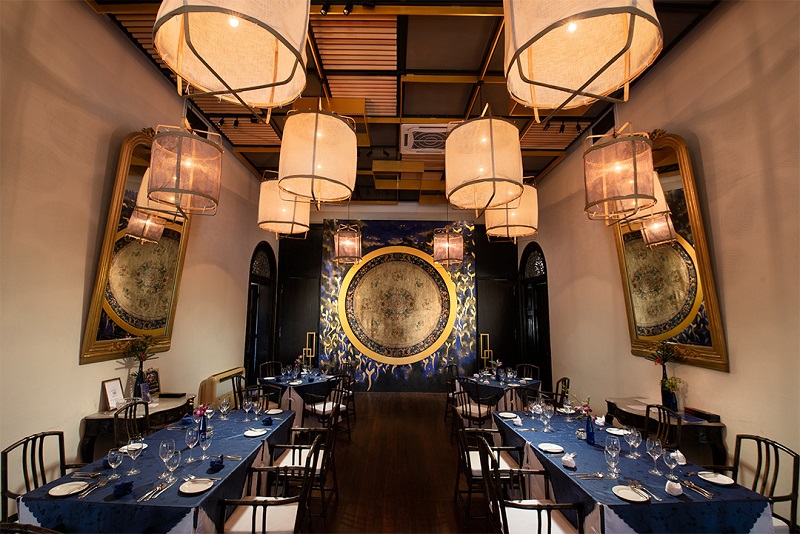
“I’m hesitant to commit to proclaiming what The Blue Mansion might be in the future, but it is almost our obligation as my father’s children to uphold and honour the legacy he is growing,” he says. “He has worked on several iconic buildings around the country, from Suffolk House in Penang to Stadium Merdeka in KL. Cheong Fatt Tze was sort of a catalyst to that, and part of a wider movement towards a public appreciation for heritage.
“Cheong Fatt Tze is an incredible place. There’s something about the building that draws people in. A certain feeling overcomes you when you step into it, like that sense of awe that creeps up when you’re standing at the edge of the Grand Canyon. You simply can’t believe how much thought and work went into the original design, how grandly people lived a century ago. So, I think we have a responsibility, almost, to keep that story alive. The Blue Mansion might transform into different things in its lifetime, but we will retain the building in all its glory as much and for as long as we can.”
This article first appeared on Sept 14, 2020 in The Edge Malaysia.


